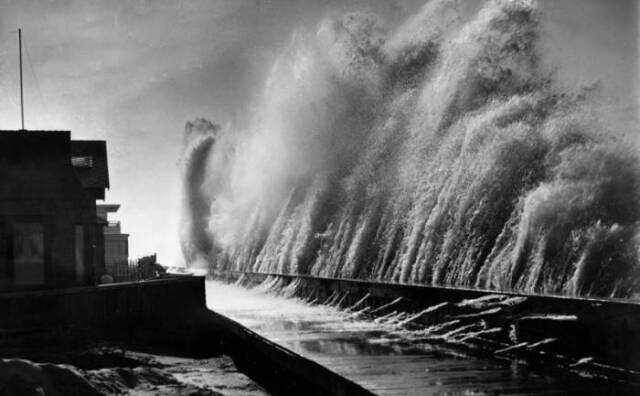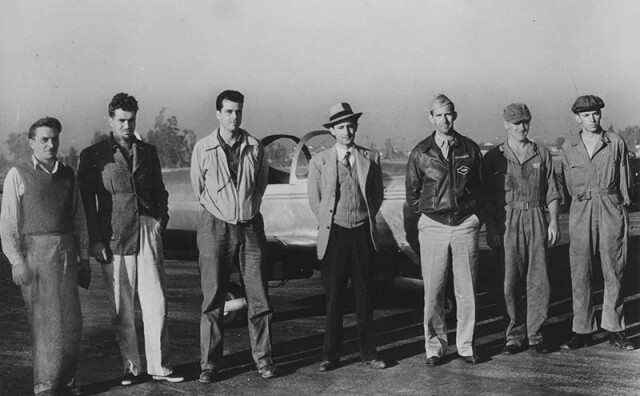28 Years After Being Freed From Modern-Day Slavery, El Monte Sweatshop Captives Are Honored

In 1995, dozens of Thai immigrants were held in an El Monte sweatshop complex surrounded by barbed wire, sewing garments past midnight under the eye of armed guards and the threat of violence.
They lived in the same complex, eight to 10 people to a bedroom, the windows boarded up with only slivers of light peeking through.
So it was with glistening eyes and astounded smiles that a couple dozen of the workers were in Washington, D.C. Monday, receiving the same honor bestowed upon giants of the labor movement like Cesar Chavez and Mother Jones.
“I cannot believe I am going to be remembered in history along with my friends,” said one of the workers, Maliwan Radomphon Clinton, in a speech on Monday at the Labor Department.
The workers were being inducted into the department’s Labor Hall of Honor — a coda to the best-known case of modern-day slavery in U.S. history, one that fueled nationwide efforts to curb wage theft and human trafficking.
After the raid immigrant workers were held for weeks
Even after federal agents raided the complex in August 1995, the workers were not set free. Because of their undocumented status, they were put in orange jumpsuits and sent to holding cells for weeks.
-
At magnitude 7.2, buildings collapsed
-
Now spinning in front of Santa Monica apartments
-
Advocates seek end to new LAUSD location policy
“They told us we were being sent back to Thailand,” Clinton recalled. “They make us feel like we were criminals.”
Acting Labor Secretary Julie Su worked on the case. As a young labor rights lawyer for what is now the group Asian Americans Advancing Justice Southern California, Su fought to keep the workers from being deported.
“I will never forget those orange jumpsuits,’’ Su said. “It broke my heart. But it also proved that criminalizing immigrant workers was not just inhumane, but it makes it harder for working people to come forward and report when they are trafficked or abused.”
Su said the workers’ ordeal helped lead to the passage of the Victims of Trafficking and Violence Protection Act and the creation of the U and T visas that allow some victims of human trafficking and forced labor to stay in the U.S.
Su also helped the workers secure a $4 million dollar settlement from the manufacturers and retailers who exploited them.
“To everyone who has been underestimated because of what we look like or where we come from, who take on big battles that people say cannot be won, you are proof of what is possible,” Su said.
Su, who served as California’s labor commissioner before moving to the Labor Department, is mired in her own struggle right now to be confirmed as President Biden’s pick for Labor Secretary.
Appearing to lack key votes, Su has continued to serve in her acting role since the March departure of Marty Walsh, while racking up the longest pending nomination of a Cabinet-level official even as both the White House and Senate are controlled by the same party.
Lured by promises of a vacation

As Su set on a path to D.C., some of the workers have continued to work in the garment industry, while others like Nantha Jaknang have become business owners themselves.
Jaknang marveled over how much her life had changed since she was lured from Thailand to work to El Monte decades ago, told by recruiters that she would get to go on vacation and visit attractions like Universal Studios.
Instead, she said she worked 18 hours a day, was not allowed to see a doctor when sick and was forced to buy food from her employers at huge markups, such as a watermelon for $14. When her mother died in Thailand, Jaknang said, she could not leave to arrange the funeral.
When the opportunity came to take her employers to court, Jaknang did not balk. And decades later, she continues to advocate for protections in the garment industry like when California through a new law put greater onus for wage theft on those who contract with sweatshops.
“We help make manufacturers and retailers take responsibility so there could be more justice for workers,” Jaknang said.
A long fight for justice
Marissa Nuncio, director of the L.A.-based Garment Worker Center, said the fight begun by the El Monte garment workers to hold name brands accountable continues today.
“It is not right that those brands that sit at the top of the supply chain, and have all of the bargaining power should not hold any responsibility for our wages and working conditions,” Nuncio said. “Workers have really honed in on that.”
Nuncio said that while trafficking is not the issue in the garment industry it was in the mid-1990s, wage theft is still rampant, which is why her organization is supporting a first-of-its-kind federal bill called The FABRIC Act, which borrows from the California law and would set hourly pay rather than paying workers by the piece, among other things.
The El Monte workers have also inspired others to fight against wage theft in other industries. More than a dozen of them were on hand for the grand opening of a labor center in Hollywood to help Thai immigrants working at restaurants, spas and farms.
Honorees from Helen Keller to President Ronald Reagan
The Labor Department honor given the El Monte workers is for people "who’ve elevated working conditions, wages, and overall quality of life of America's working families."
First created in 1989, the Labor Hall of Honor has recognized everyone from Eugene V. Debs and Helen Keller to President Ronald Reagan.
Most inductees to the Labor Hall of Honor are individuals, though last year essential workers were recognized for their contributions during the pandemic. And in 2015, Chinese railroad workers were honored for building the transcontinental railroad.
For Clinton, her introduction to the U.S. as a young Thai immigrant held captive in a sweatshop shattered her idealized view of the country.
But in the decades since, she married a volunteer who'd been helping the garment workers and raised two college-age sons who were in the audience Monday.
"Today I'm standing here," Clinton said. "I have a beautiful life."
And, she said, she was proud to call herself American.
-
Restored with care, the 120-year-old movie theater is now ready for its closeup.
-
Councilmember Traci Park, who introduced the motion, said if the council failed to act on Friday, the home could be lost as early as the afternoon.
-
Hurricane Hilary is poised to dump several inches of rain on L.A. this weekend. It could also go down in history as the first tropical storm to make landfall here since 1939.
-
Shop owners got 30-day notices to vacate this week but said the new owners reached out to extend that another 30 days. This comes after its weekly swap meet permanently shut down earlier this month.
-
A local history about the extraordinary lives of a generation of female daredevils.
-
LAist's new podcast LA Made: Blood Sweat & Rockets explores the history of Pasadena's Jet Propulsion Lab, co-founder Jack Parsons' interest in the occult and the creepy local lore of Devil's Gate Dam.








